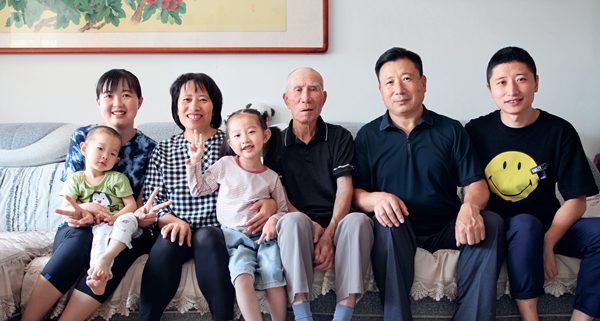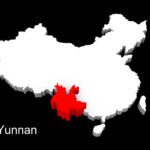State of Families CSSF Report: Hebei, China (2023)
Families are the basic unit of society, and their well-being is essential for the overall development of a community or nation. This technical report provides an overview of family life in the Chinese province of Hebei. Data for this report was obtained using open-sourced information, such as the National Bureau of Statistics of China.
The report’s main objective is to provide a concise overview of the conditional state of families using Hebei family demographic statistics (e.g., number of families, family structure, racial and ethnic diversity, marriage rates, divorce rates, family income, etc.).
This report is written for stakeholders with an interest in family life in China, the Chinese province of Hebei in this case. This approach makes certain that the report’s findings are transparent and replicable, and stakeholders can access, verify, and utilize the data sources themselves.
Overview of Hebei
Hebei covers an area of approximately 188,800 square kilometers (72,900 square miles). According to the New World Encylopedia Hebei is a province located in the northern part of the North China Plain. There are numerous provinces and autonomous regions surrounding it, including Liaoning to the northeast, Inner Mongolia to the north, Shanxi to the west, Henan to the south, and Shandong to the southeast. The province also encircles two municipalities, Beijing and Tianjin. Hebei’s capital and largest city is Shijiazhuang.
Population of Hebei
According to the Publicity Department of CPC Central Committee’s conference in June 2021, Hebei has a population of around 74.6 million people.
Hebei’s population is predominantly rural, and infant and young child feeding practices in these areas have been a focus of research due to their impact on child health and development.
Ethnic Group
The 2000 census shows that the majority of the population is Han Chinese, accounting for 95.65% of the total population. The largest groups in Hebei are Manchu (3.18%), Hui (0.78%), and Mongol (0.26%). The Manchu are mainly found in Fengning County. In Shangyi County, there is an isolated Mongolian community called Wutai Mongolian Ying, where 95.1% of the local people speak both Mongolian and Chinese.
Manchu people have a history of military prowess and were once the ruling class during the Qing Dynasty. The Hui people, who are predominantly Muslim, are known for their religious scholarship and trade skills. The Mongol people, traditionally nomadic herders, have skills related to animal husbandry and survival in harsh climates.
Culture
Hebei is home to several Confucian temples, which were initially built to offer sacrifices to Confucius but later developed into a combination of temples and official schools. These temples are a significant part of the province’s cultural heritage. Although Hubei Province had about 78 Confucius temples at the end of the imperial period, today only 20 have survived, according to Contemporary Confucius Temples Life in Mainland China: Report from the Field.
Hebei is known for its Yanzhao culture, which is showcased through folk music, dancing, acrobatics, and the Hebei Clapper Opera.
Family Dynamic
Traditional Chinese values have had a big impact on the family structure in Hebei, as they have in the rest of China, but socioeconomic advancements have also brought about significant changes. According to one study, the socioeconomic and political changes over time had a significant impact on the changes in familial strategies and structures in rural China, particularly in Hebei. The shift from collectivization to a more market-oriented economy had significant impacts on the size and structure of families in rural areas. Traditionally, Chinese families were characterized by patriarchy, the patrilineal system, and patrilocal residence. However, recent studies have shown a shift away from these traditional structures. It’s important to note that the provided information is not specific to Hebei.
The most common family structure in China, including Hebei, is the nuclear family, which consists of parents and their children. The 2006 China General Social Survey showed that over two-thirds of the families in China are nuclear families. However, one-third of the families are extended families, which can take various forms, such as the three-generation household, the two-generation household with one generation of married siblings, and the grandparent-headed household with a parent absent.
In Hebei, the average household size has decreased from 3.36 members in 2010 to 3.04 members in 2019. The number of households in Hebei grew by 27.61 percent, from 20.39 million in 2010 to around 26.02 million in 2019.
Liu Yanhua, the Vice President of the Hebei District People’s Court, noted that a significant number of young individuals are filing for divorce based on various reasons, with most of these issues not severely harming the family or the emotional connection between the two parties. In this context, 31% of couples believe that they didn’t have a thorough understanding of each other before marriage, leading to challenges in their relationship, including communication difficulties. Additionally, 24% claim that their partner failed to fulfill their familial responsibilities, and parental involvement played a significant role. Furthermore, around 7% cited reasons such as domestic violence and extramarital affairs as grounds for divorce. Notably, women initiated 68% of these divorce cases.
As per the National Bureau of Statistics, here is the marriage and divorce data for Hebei
| Hebei | 2021 | 2020 | 2019 | 2018 | 2017 | 2016 | 2015 | 2014 | 2013 |
|---|---|---|---|---|---|---|---|---|---|
| Marriages registered (10,000 pairs) | 33.71 | 37.49 | 42.13 | 45.87 | 50.49 | 55.19 | 60.94 | 66.13 | 74.08 |
| Divorces registered (10,000 pairs) | 13.4 | 23.65 | 25.57 | 23.45 | 23.24 | 22.02 | 19.9 | 18.57 | 17.88 |
Marital Relationships and Parenting Practices
Marital relationships and parenting practices in Hebei, China, have been studied in various contexts. A cross-sectional study conducted in Hebei from March to June 2017 examined the effects of marital satisfaction, perceived caring of the mother-in-law, and social support on postpartum depression and sleep quality in women. The study found that marital satisfaction and perceived caring of the mother-in-law had both direct and indirect effects on postpartum depression through social support. The study also found that the mother-in-law is a significant support provider for postpartum women, and conflicts regarding baby care and lifestyle differences between a woman and her mother-in-law can cause negative moods in postpartum women.
Another study conducted in rural areas of Hebei and Yunnan provinces found that parenting in rural China is largely passive, lacking in interactive practices like storytelling, singing, and playing. The study also found that children with siblings, left-behind children, and children with less-educated mothers were even less likely to receive interactive practices. However, children of caregivers who did engage in best parenting practices showed better cognitive, language, and social-emotional development.
According to these studies, social support, marital satisfaction, and the mother-in-law’s role are just a few of the variables that may affect marital relationships and parenting practices in Hebei. They also highlight the need for more interactive parenting practices, particularly in rural areas.
Education
Education in Hebei, a province in China, has been improving alongside economic development. Kindergarteners in the rural region of Hebei, which is representative of Chinese provinces facing economic challenges and insufficient early childhood education funding, exhibited subpar performance in all assessed early childhood education criteria.
The province is home to numerous universities and high schools that are qualified to accept international students. Some of the notable universities include Hebei Agricultural University, Hebei Normal University, Hebei University of Economics & Business, Hebei University of Technology, Hebei University, Hebei United University, Hebei University of Science and Technology, Yanshan University, Hebei Medical University, and North China Electric Power University, among others.
Political
Hebei is a province in northern China, known for its significant role in the integration of the Beijing-Tianjin-Hebei region. This integration aims to promote economic growth and development by closely linking Hebei with the development of Beijing and Tianjin. Which has been affected by heavy air pollution due to rapid urbanization, industrialization, and motorization. The region has implemented stringent air pollution control policies, which have led to improvements in air quality. However, challenges remain in controlling industrial and traffic emissions, and there are concerns about the sustainability of the current air pollution control measures.
Industries
Economically, Hebei has a diverse industrial base. The province has seen significant development in its coal chemical industry in recent years, with its coke production capacity ranking second in the nation. Two major coal chemical industry bases, Jing-Tang and Han-Xing, have been established, and there are plans to set up the Hebei Coal Chemical Industry Group. The province also has a strong agricultural sector, with efforts being made to modernize and mechanize agricultural practices, particularly in the northwest region.
The province has a diverse range of industries, including coal, chemical, and agricultural sectors. The coal chemical industry in Hebei has experienced significant growth in recent years, with the province ranking second in coal production capacity in the nation. Two major coal chemical industry bases, Jing-Tang and Han-Xing, have been established, and there are plans to set up the Hebei Coal Chemical Industry Group.
Agriculture is another important sector in Hebei, particularly in the northwest region. The province faces challenges due to its poor geography, climate, and natural conditions, which have resulted in a lower level of agricultural mechanization. Efforts are being made to analyze and address these constraints to promote the rapid development of agricultural mechanization in the region.
Conclusion
In conclusion, Hebei Province, located in the northern part of the North China Plain, covers an area of approximately 188,800 square kilometers and has a population of around 74.6 million people. There are numerous other provinces and autonomous regions surrounding the primarily rural province. Hebei’s capital and largest city is Shijiazhuang, and it encircles two municipalities, Beijing and Tianjin. The majority of the population is Han Chinese, with significant minority groups such as Manchu, Hui, and Mongol. Hebei plays a significant role in the integration of the Beijing-Tianjin-Hebei region, promoting economic growth and development. The province has a diverse industrial base, including coal, chemical, and agricultural sectors. However, it faces challenges in controlling industrial and traffic emissions, as well as improving agricultural mechanization. Numerous elements, such as marital satisfaction, social support, and the position of the mother-in-law, have an impact on marital relationships and parenting practices in Hebei. The province is also home to several Confucian temples, which are a significant part of its cultural heritage.





